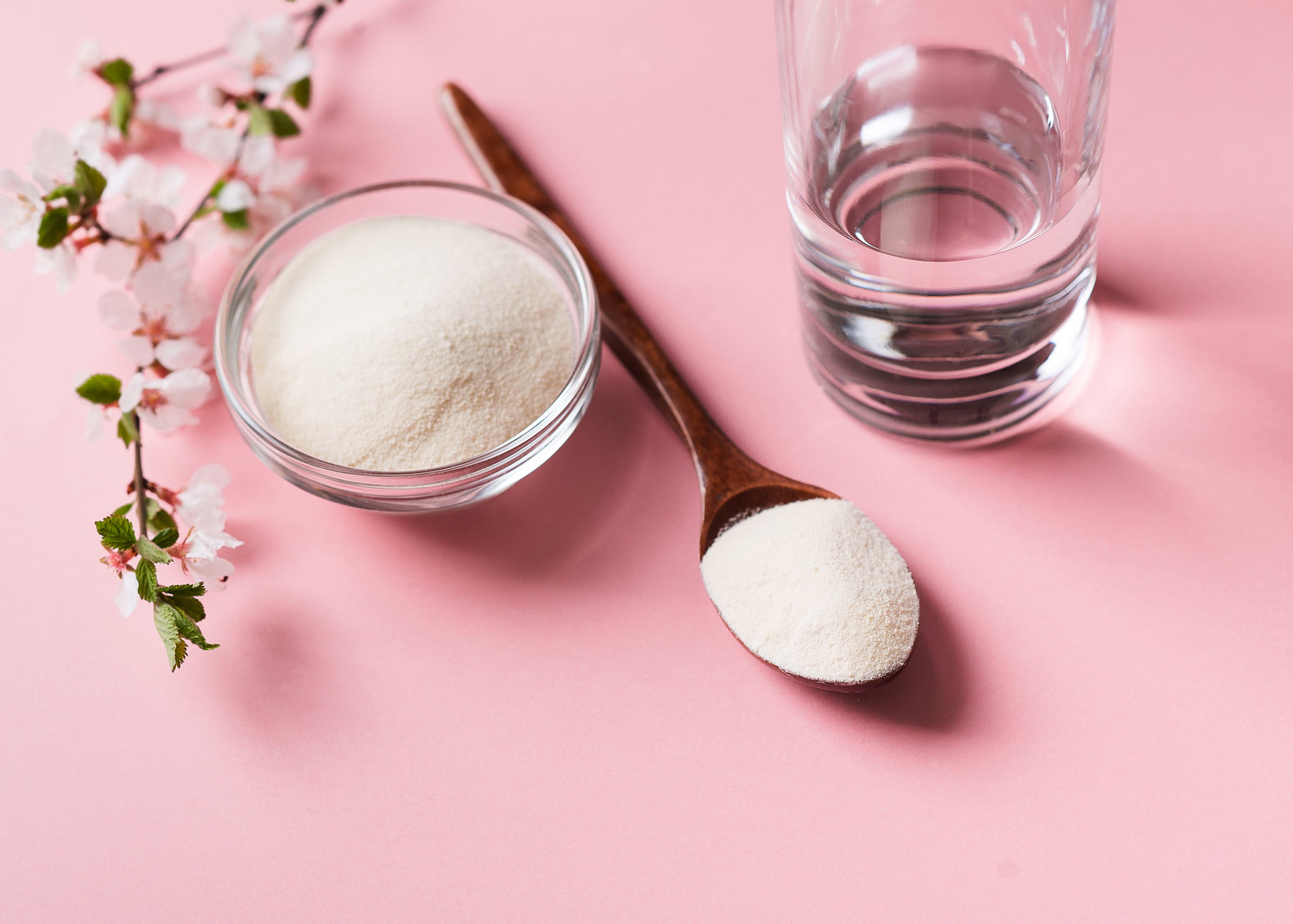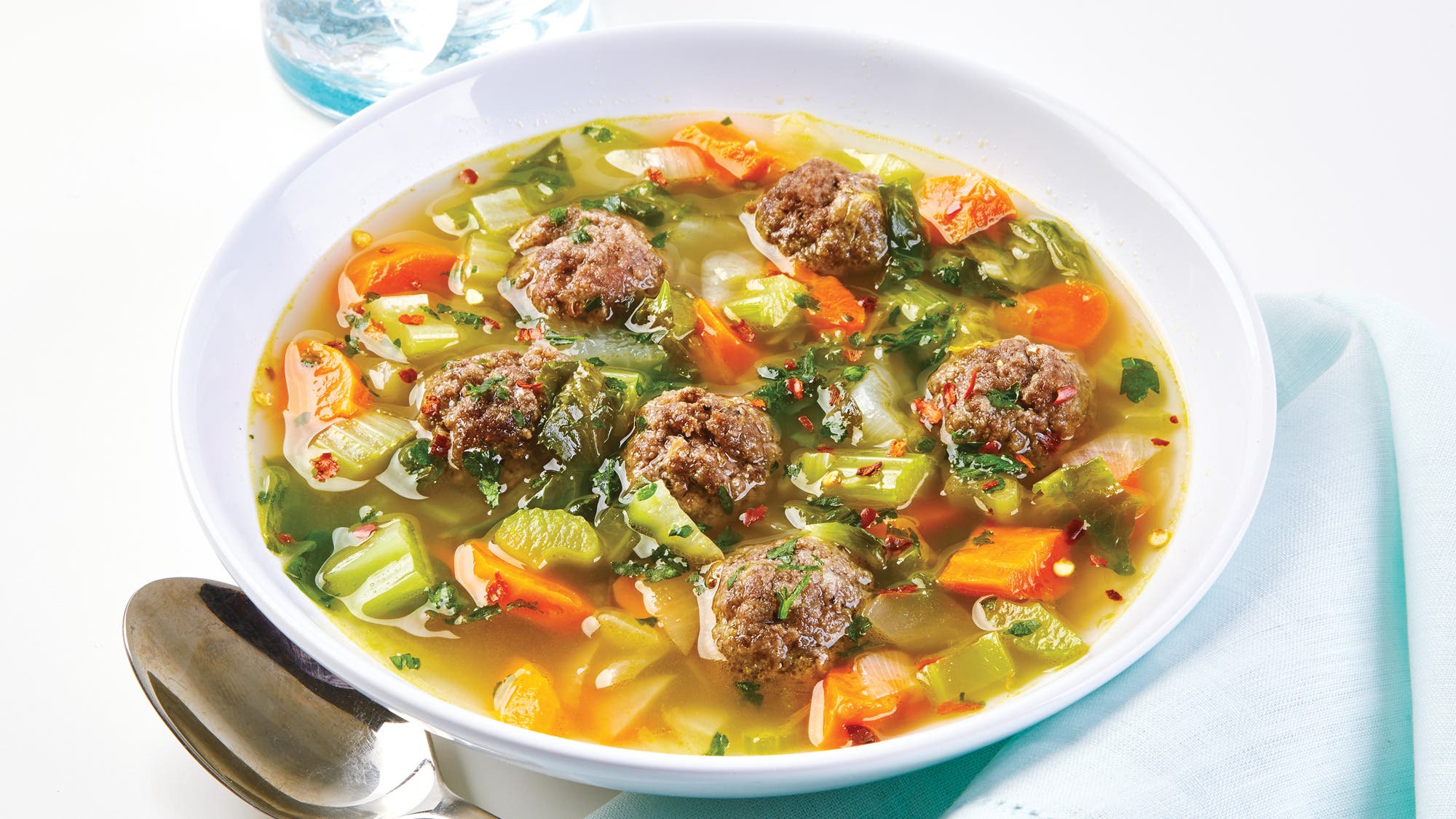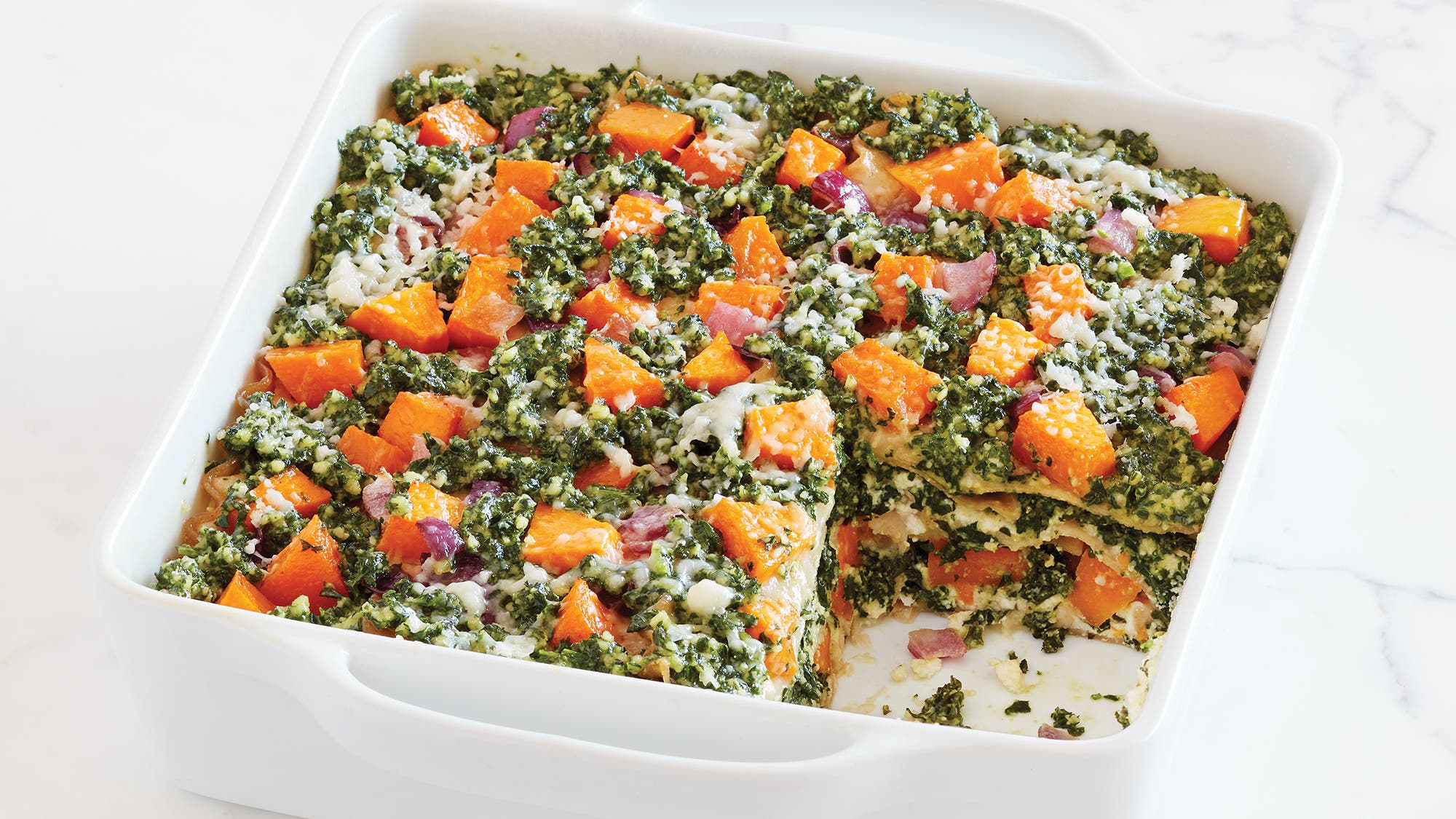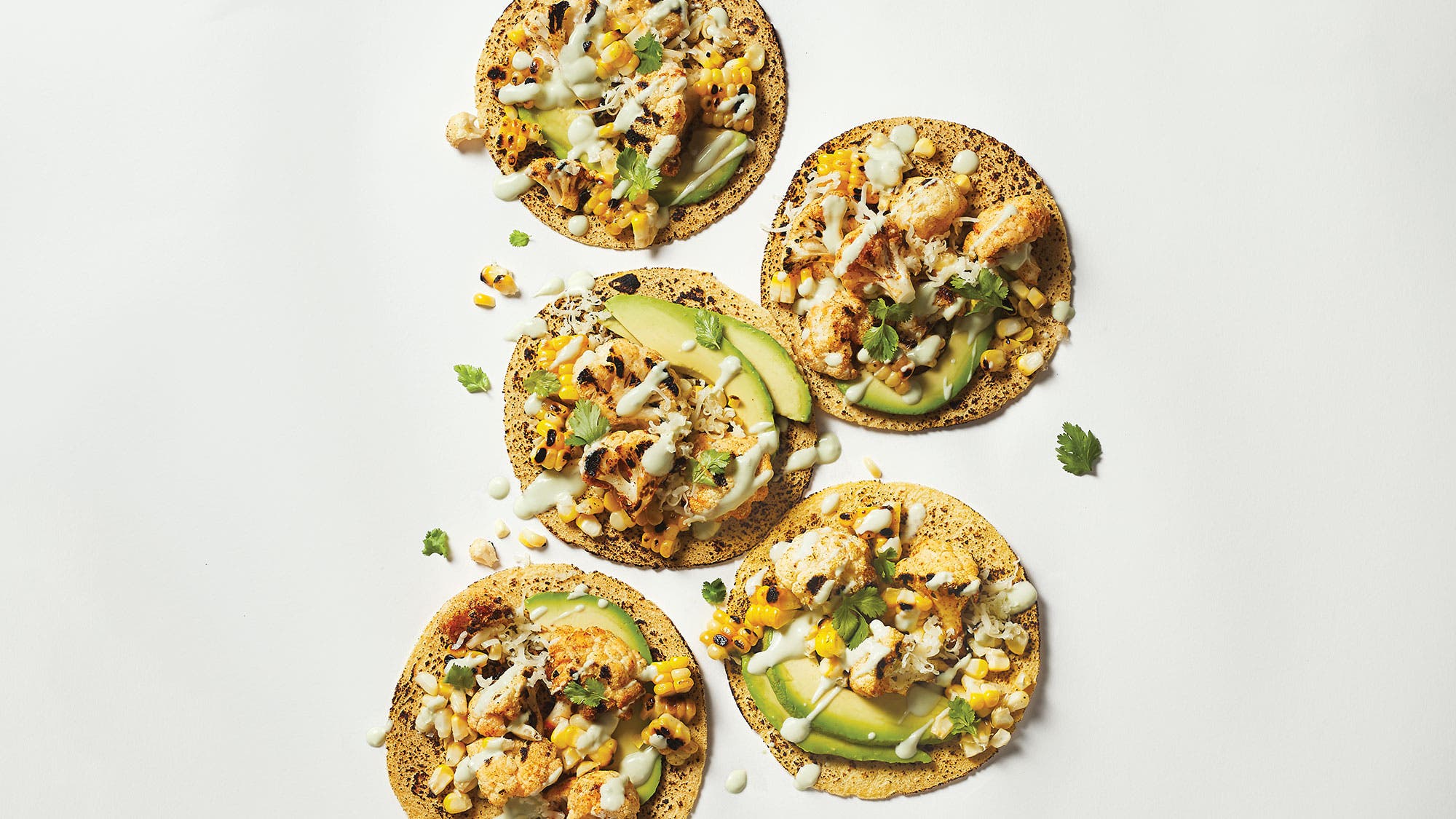Collagen 101 + The Truth About Vegan Collagen

(Photo: Denira / Shutterstock)
Collagen’s been making headlines in health and wellness for several years. Thought of as the fountain of youth in edible form, dietary experts, fitness enthusiasts, wellness practitioners and beauty gurus alike have quickly cozied up to the concept of consuming this essential protein found almost entirely in animal sources. However, some doubt the efficacy of eating collagen for better health. Plus, while many animal-derived foods and supplements have developed innovative vegan-friendly counterparts, vegan collagen is still elusive in mainstream markets, leaving people wondering if plant-based collagen is even real.
So, what exactly is collagen, what science-backed benefits does it bring and what are the options for those who don’t consume animal byproducts? Read on to find out.
What Exactly is Collagen?
Collagen is the most abundant protein found in the human body – and in animal bodies! An integral component in the body’s connective tissues and extracellular matrices, meaning bones, cartilage, ligaments, joints, skin, hair, nails and dentin (the calcified tissue found beneath enamel in teeth), collagen-rich recipes and supplements source this protein from animals.

Of ancient Greek (and rather dark) origin, the word “collagen” itself denotes that it comes from animals. Κόλλα (colla) is the Greek word for “glue,” while -γέν (gen) means “producing.” This is thought to have originated from the process of melting down horse hooves and tendons to make glue. While we’ve moved onto oil-based sources for glue-making, we continue to use animal parts for our dietary needs.
Why Eat Collagen?
Collagen is often referred to as the glue that holds the body together, harkening back to its origins as a recipe for actual glue. Starting at roughly 20 years old, we lose the ability to produce collagen by up to 1% of our production each year. If you’ve wondered why babies have the best skin, it’s because their collagen content – the component in skin that gives it its firmness – is higher than that of adults. Knowing this, it comes as no surprise that dietary collagen is a multibillion-dollar market. While at first, skeptics doubted the effectiveness of orally administered collagen, a growing body of evidence suggests that eating this protein is good for skin, joint and muscle health, and also for wound healing.
A study from the German University of Kiel conducted on 69 women aged 35 to 55 found that those who consumed collagen regularly over several weeks had statistically greater skin elasticity. Research also supports the claim that collagen is good for muscle health: a recent study by the University of Freiburg and its hospital found that supplementation with collagen, when paired with resistance training, was conducive to muscle-growth in elderly men with sarcopenia, which is loss of muscle caused by aging. And yes, research also supports the theory that eating collagen can improve wound-healing ability: a study, hosted between two Departments of Surgery in Japan with the University of Tokyo Graduate School of Medicine, conducted on long-term care residents with pressure ulcers, found that those who supplemented with collagen experienced wound-healing at double the rate of those who did not.
How to Eat Collagen
When it comes to eating collagen, the East has us beat by a few thousand years. While this protein may seem trendy to Westerners, the practice dates back to traditional Chinese medicine where it has been consumed for millennia for strong joints and glowing skin. But while exotic ethnic delicacies like red-braised pig feet stews, bloated fish bladders, and the fallopian tubes of snow frogs can be hard to come by in America, we do have some options in more common ingredients.
- Chicken & pork: When prepping chicken, have you noticed how sinewy and webbed with white connective tissue the meat is? This is because chicken is chock full of collagen. In fact, chicken is such an abundant source of collagen that many supplement companies use ingredients derived from chicken neck and cartilage in their formulations. Pork is another meat abundant in collagen supply, with use of its bones, cartilage, meat and especially its trotters used in recipes dating back to Chinese antiquity. Bone chicken and pork are commonly sighted ingredients in bone broth soup, which is arguably the most famous way of eating collagen, as a quick Google search for collagen-rich recipes will quickly tell you.
Try: Kefir Ranch Chicken & Vegetables recipe

- Fish & Shellfish: An excellent substitute for pescatarians and flexitarians, many collagen supplements derive their ingredients from marine sources such as fish and jellyfish, with seafood collagen thought by researchers to be absorbed up to 1.5 times more efficiently by the body than collagen from land mammals, thanks to fish collagen’s lower molecular weight and size, which allows it to more effectively pass through the intestinal barrier into the bloodstream. Ongoing research into marine collagen is largely inspired by the fact that aquatic organisms don’t harbor transmissible diseases at the rate land-based animals can. Additionally, considering that by-catch marine life such as small fish, jellyfish, starfish and sponges possess impressive amounts of collagen, using these ordinarily discarded parts of a fisherman’s catch can mean a more economically viable and more eco-friendly source.
Try: Roasted Scallops with Broccolini & Caramelized Leeks recipe

What About Plant-Based Collagen?
Impressive innovations in the food and beverage industry have brought us countless plant-based alternatives for meat and other animal byproducts. Items that would’ve been oxymorons a hundred years ago (like vegetarian meats and vegan milks) are now breaking free of niche specialty markets and hitting supermarket shelves. However, plant-based collagen still struggles to meet mainstream markets, remaining shrouded in mystery. If collagen is derived directly from connective tissue and bone, can vegan collagen really exist?
The good news is that yes, a vegan source of collagen does exist! While the research is still emerging, scientists have found a way to engineer collagen from genetically modified yeast and bacteria. In the building process, a digestive enzyme is used to structure the building blocks of this engineered collagen so that it resembles the collagen found in humans.
The bad news? Research is in the early stages and commercially available products are in even earlier stages. Numerous companies, like Chinese biotechnology firm Jland Biotech and South Wales medical biomaterials company ProColl, are trying to take advantage of this yeast-based innovation to break into the sorely-lacking vegan collagen market, but most of these products are for topical application and not ingestion. Seeing as the efficacy of topical application of collagen for better skin and better internal health doesn’t have the same body of research to support it, this comes at a loss for vegans looking to boost their collagen content through food. The few that are making potentially edible vegan collagen, such as bio-design company Geltor, are still perfecting their formulas in lab settings and do not yet have widely available consumables on the market.
But all hope is not lost. There are still foods and lifestyle-choices that vegans and non-vegans alike can make to boost our bodies’ natural collagen production.
Prevention
Yes, it’s true, we lose our ability to produce collagen within our bodies as we age. However, there are discrepancies between how quickly one person can lose the ability compared to the next, and it likely comes down to lifestyle choices. One common enemy of collagen production is excessive sun exposure. With the meteoric rise of the skincare industry in the last couple of years, the dangers of UV rays and how it accelerates the aging process of skin has become common knowledge. Make sure to use SPF 30+ if you’re spending time in the sun, especially on the face, neck and hands where skin ages most rapidly.
Bonus: While this is a harder habit to beat, it’s well-known that smoking reduces collagen production. Limiting or, if you’re feeling up to the challenge, quitting this habit will do wonders for your skin elasticity down the road.
Vitamin C & A
These two essential vitamins are integral to the process of your body’s natural collagen production, and whether you do or don’t eat meat, you can get both vitamins C and A from eating a diverse array of produce. The body uses vitamin C to produce hyaluronic acid, an acid that in itself has been linked to easing joint pain but also to the production of collagen. Vitamin A is also integral to collagen production, with deficiencies linked to decreased collagen synthesis and stability. For vitamin C, make sure to get your fill of dark leafy greens like kale, cruciferous veg like broccoli and colorful produce such as bell peppers and strawberries. For vitamin A, keep an eye out for bright orange vegetables like sweet potatoes, squash and carrots.
Try: Butternut Squash Lasagna with Kale Pesto recipe

Eat Amino Acids
While collagen is composed of many amino acids, the three most important for collagen synthesis are proline, lysine, and glycine. While more research is needed at this stage, there is some evidence to say that a diet rich in these three amino acids is important for adequate collagen synthesis. Here are some nutritious, plant-based sources of these amino acids:
- Proline: savoy cabbage; bamboo shoots; asparagus
- Lysine: quinoa; lentils; pumpkin seeds
- Glycine: spinach; kale; cauliflower
Try: Smoky Cauliflower Tacos with Avocado Crema recipe
